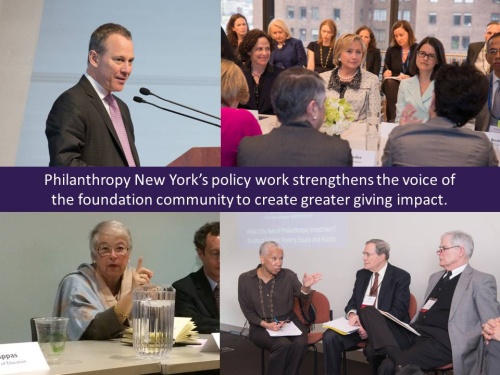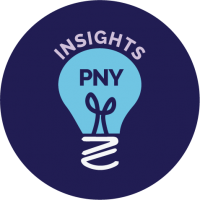 Philanthropy New York (PNY) actively connects its members with policymakers and acts as a voice on local, state and federal public policy issues. Our goal is to promote effective philanthropy and build stronger communities. We achieve this through close collaboration with our members, our Public Policy Committee, and our issue-based working groups, which focus on specific areas like youth and education, criminal legal reform, health, and environment.
Philanthropy New York (PNY) actively connects its members with policymakers and acts as a voice on local, state and federal public policy issues. Our goal is to promote effective philanthropy and build stronger communities. We achieve this through close collaboration with our members, our Public Policy Committee, and our issue-based working groups, which focus on specific areas like youth and education, criminal legal reform, health, and environment.
We monitor and address policy and practices that directly impact both our sector and the broader nonprofit ecosystem. We also engage our member foundations in public policy discussions that are directly relevant to the issue areas they support.
We see policy work as a way to achieve our mission to promote philanthropy and a robust nonprofit sector in the region, ultimately contributing to a more equitable world through effective philanthropic practices.
How We Engage in Public Policy
Weighing in on policies directly affecting the sector: We monitor and address legislation and regulations that directly affect foundations and the larger nonprofit sector. We will only take a position on a proposed bill or rule if it is clear that the majority of our members agree and we have engaged in a substantial process of engaging them. Our board developed that process to determine when — if at all — Philanthropy New York should take a position on sector-related matters.
Promoting solutions in issue areas: We engage our members in public policy that directly affects the issue areas they fund, such as education, health, social justice and the arts. Although we don't anticipate Philanthropy New York will take positions on proposed bills or rules in those areas, we work to ensure our members have the policy data, skills and connections they need to achieve their missions and help their grantees.
Connecting funders and policymakers on shared areas of work: We regularly host programming with funders and policymakers to engage in critical cross-sector conversation about shared areas of work. PNY also participates in Foundations on the Hill (FOTH), an annual trip to Washington D.C. with more than 300 philanthropy representatives from around the country, to speak with our elected officials about the policies that matter most to philanthropy. The goal of FOTH is to inform and educate congressional leaders about philanthropy and encourage our elected officials to view foundations as resources on key public policy issues.
PNY's Policy Priorities
Philanthropy New York's Public Policy Priorities elaborates why we engage in policy work, our organization's core principles for our policy work and our advocacy agenda for the year.

